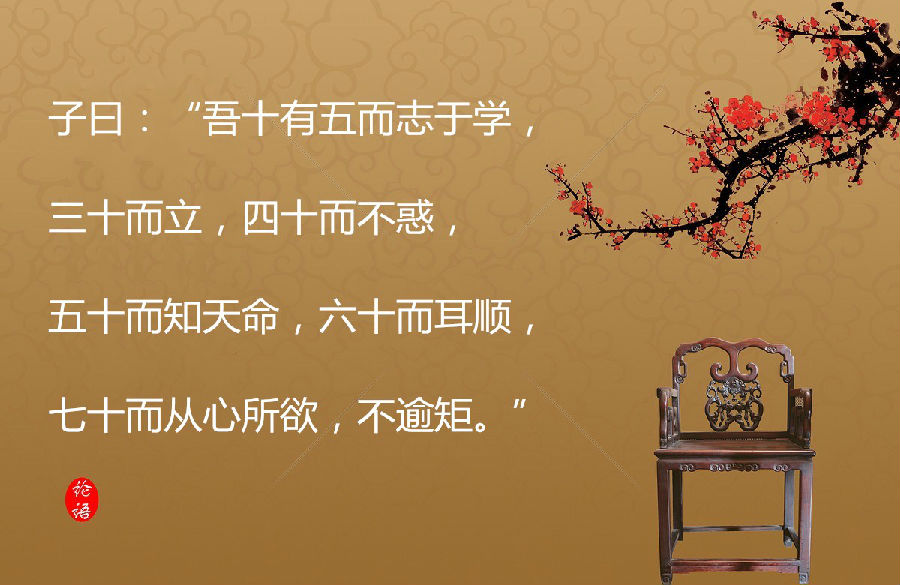The Master said, "He who exercises government by means of his virtue may be compared to the north polar star,
子曰:“为政以德,譬如北辰,
which keeps its place and all the stars turn towards it."
居其所而众星共之。”
The Master said, "In the Book of Poetry are three hundred pieces, but the design of them all may be embraced in one sentence 'Having no depraved thoughts.'"
子曰:“《诗》三百,一言以蔽之,曰:‘思无邪’。”
The Master said, "If the people be led by laws, and uniformity sought to be given them by punishments, they will try to avoid the punishment, but have no sense of shame.
子曰:“道之以政,齐之以刑,民免而无耻。
If they be led by virtue, and uniformity sought to be given them by the rules of propriety, they will have the sense of shame, and moreover will become good."
道之以德,齐之以礼,有耻且格。”

The Master said, "At fifteen, I had my mind bent on learning. "At thirty, I stood firm.
子曰:“吾十有五而志于学,三十而立,
"At forty, I had no doubts. "At fifty, I knew the decrees of Heaven.
四十而不惑,五十而知天命,
"At sixty, my ear was an obedient organ for the reception of truth.
六十而耳顺,
"At seventy, I could follow what my heart desired, without transgressing what was right."
七十而从心所欲,不逾矩。”
I asked Mang what filial piety was. The Master said, "It is not being disobedient."
孟懿子问孝,子曰:“无违。”
Soon after, as Fan Ch'ih was driving him, the Master told him, saying,
樊迟御,子告之曰:
"Mang-sun asked me what filial piety was, and I answered him,-'not being disobedient.'"
“孟孙问孝于我,我对曰‘无违’。”


